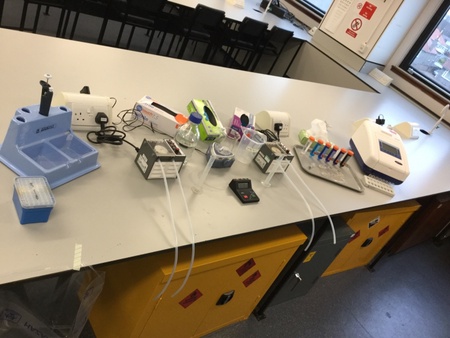Developing new and improved methods for engaging students with pharmacokinetics
I recall when I was a student how difficult the mathematical elements of pharmacokinetics were to understand. They were traditionally taught in a dry manner using blackboard and chalk making their relevance to pharmacology and clinical outcomes difficult to connect. Now, as the programme coordinator for the clinical pharmacology and drug discovery programmes, I am always looking for ways to improve and develop our teaching approaches, and fuelled by my own experiences, the ways we teach pharmacokinetics, specifically.
I secured a number of teaching grants through the University of Aberdeen and the British Pharmacological Society (BPS) to fund my plans to develop our teaching approaches, and with the help of student interns now have an established array of innovative, exciting and supportive resources to deliver a more engaging pharmacokinetic experience.
These include the following:
- A hierarchy of online resources including definitions, explanations, worked examples and exercises designed by student for students to support development of understanding and confidence in the use of pharmacokinetics models.
- A series of interactive tutorials designed to engage students with the process of working with pharmacokinetic data, and applying understanding relating to clinical and pharmacological principles.
- An array of practical simulation exercises working with model systems mimicking human pharmacokinetics to permit students to visualise the influence of the body on drugs and to derive their own data for analysis and comparison.
- A collection of interactive online exercises that encapsulate the above innovations in a digital package designed to engage students on and off campus.
These developments represent our commitment to developing teaching approaches towards a key area of the pharmacology curriculum, and also demonstrate the dynamism and innovation within which we aim to enhance our teaching and learning methods. They also show the ways in which key connections are being formed between theoretical knowledge and applied concepts to develop a more effective and holistic approach to educating future pharmacologists. Within these strategies, there is evidence of experience-based, student-based and technology-based approaches to ensure the pharmacology and drug discovery experience at the University of Aberdeen is modern, forward thinking and practical in its approach.


